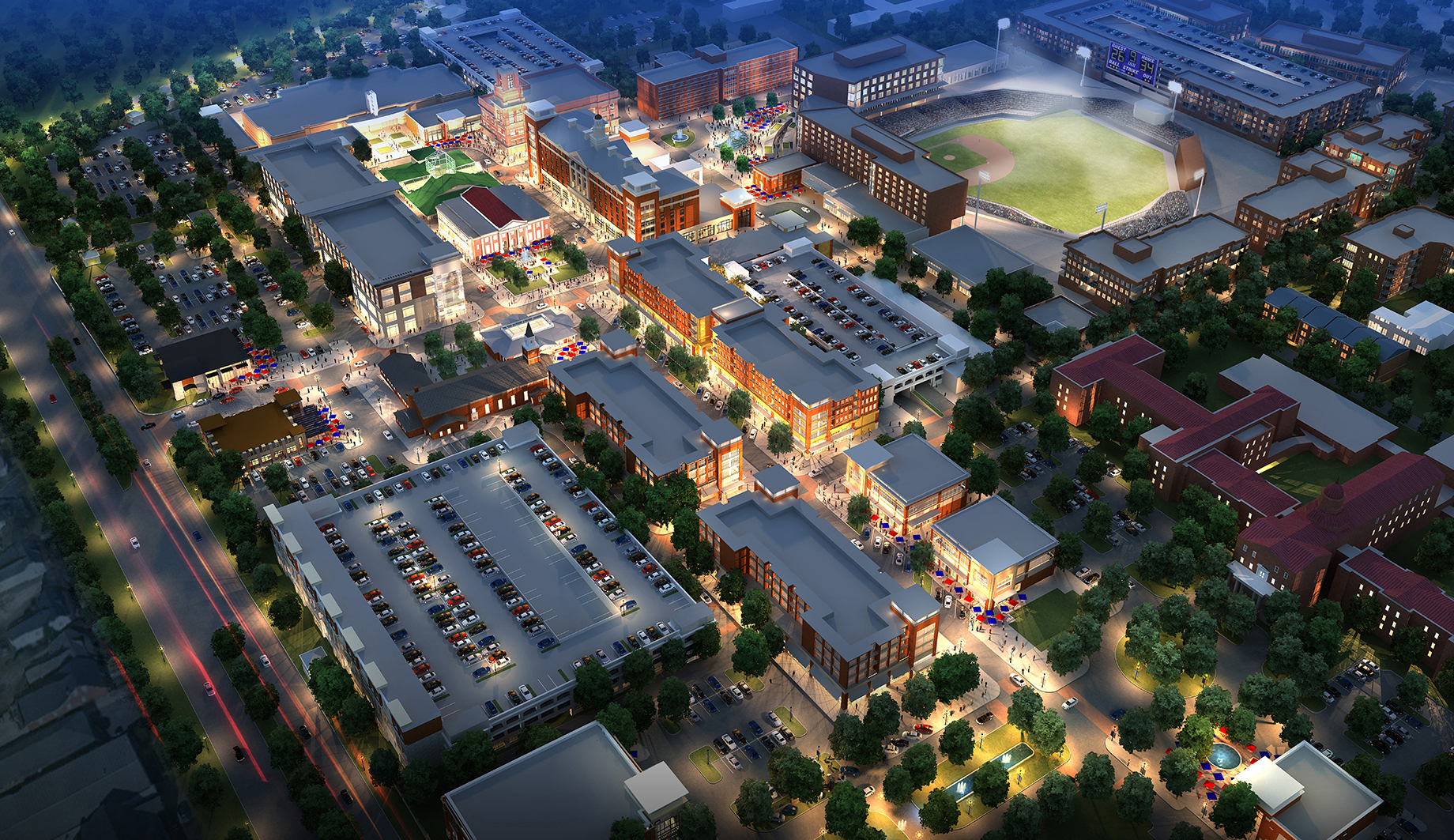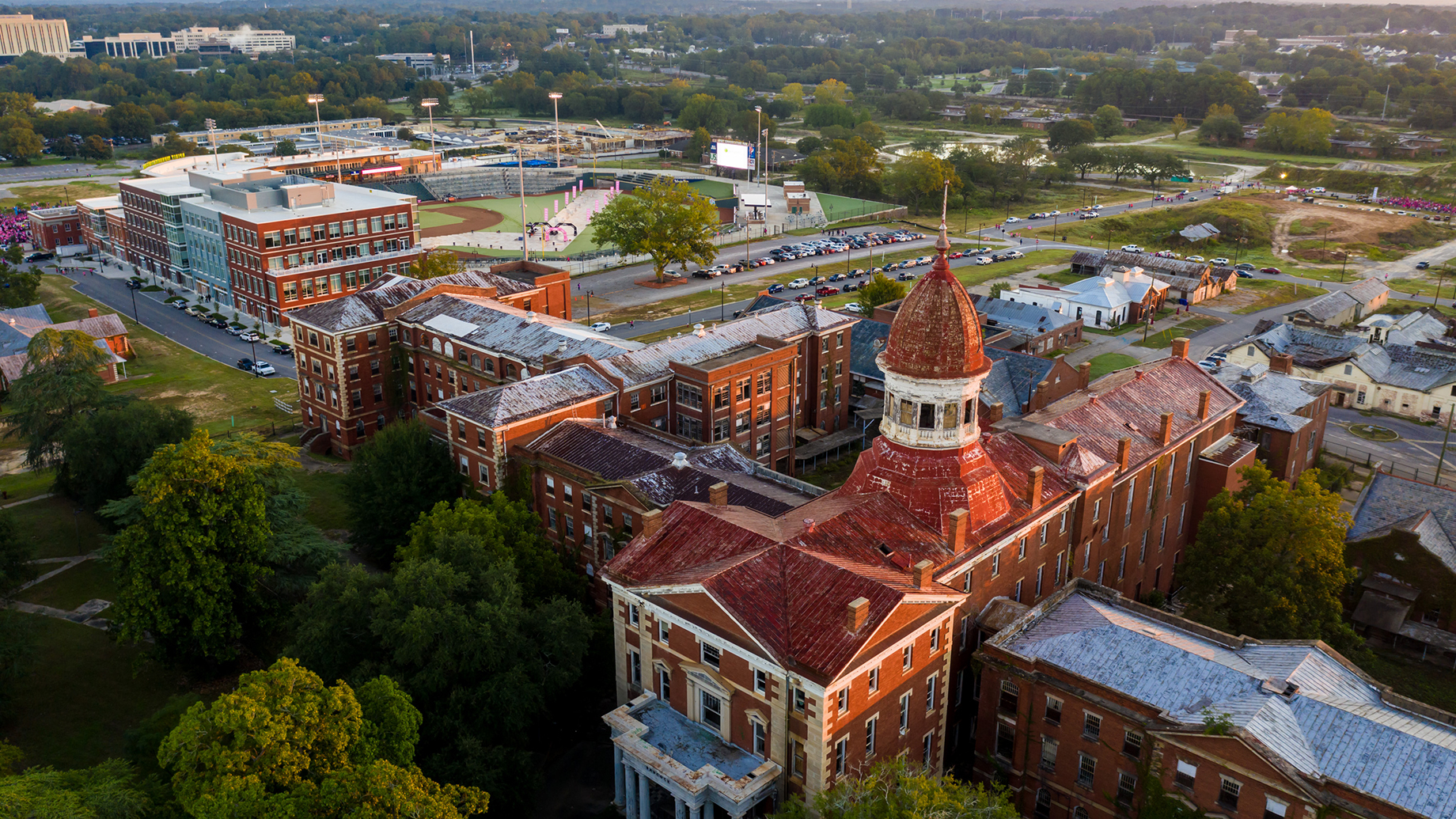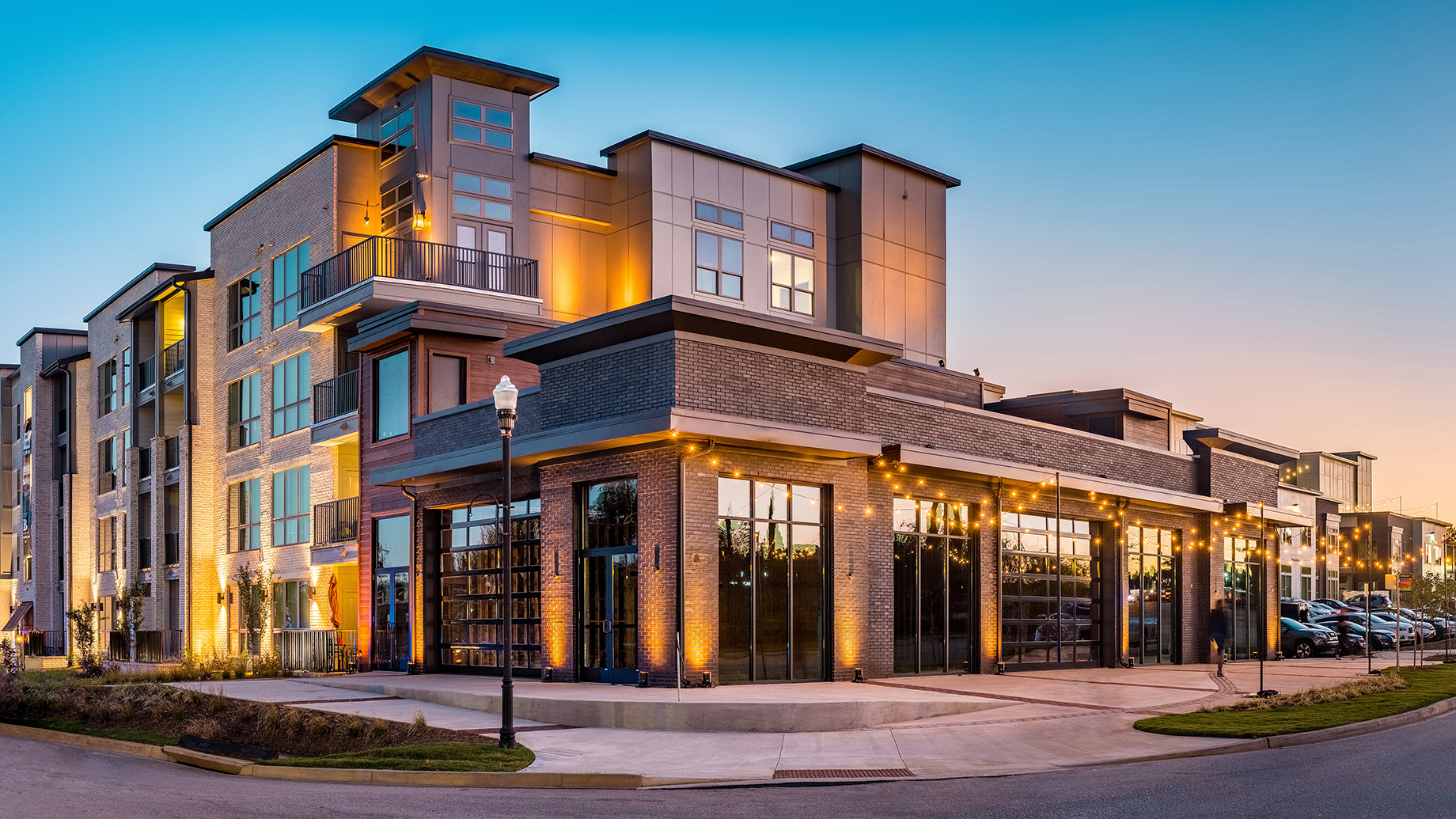For all that Columbia, South Carolina, actually has to entice retail and real estate professionals — it's the state capital, hosts Fort Jackson army base and 35,000 University of South Carolina students and boasts growing employment sectors in technology and industry — perhaps the most attractive facet is what this metro of nearly 1 million residents actually lacks: a central live, work, play location. Robert Hughes is jumping on that gap, with the redevelopment of an old state mental hospital campus downtown. The project’s name matches its ambition: The BullStreet District.

Hughes Development Corp. is redeveloping a 181-acre former mental hospital campus into The BullStreet District. A minor-league baseball stadium was delivered in 2016
“There are some great retail areas in Columbia, absolutely, but historically, those areas are too spread out to attract the entire region,” said Hughes, president of Greenville, S.C.–based Hughes Development Corp., the project’s master developer. “The feedback we received from retailers at the very first meetings we had at ICSC [RECon years ago] in Las Vegas was that BullStreet makes sense for them. It is the one place in the market that can draw from the entire region.”
The 181-acre project, which broke ground in 2015, calls for 3.3 million square feet of commercial space and 3,558 residential units through 2035. The initial phase includes a $37 million minor-league baseball park, which opened in the center of the district in 2016, and 233,000 square feet of retail, entertainment and restaurant space. Hughes has been seeking primarily experiential retailers that do not yet have a presence in Columbia. At least prior to COVID-19, the state’s second REI was scheduled to move into a 20,000-square-foot building in late spring and Starbucks to open a 2,500-square-foot shop in early 2021. Local restaurant Bone-In Barbeque, which opened in 2018 in a historic building adjacent to the ballpark, had stopped daily meal service and now caters special events at the venue.

The initial phase of The BullStreet District’s 20-year plan comprises 233,000 square feet of retail, entertainment and restaurant space
Additionally, a 20-acre park was nearing completion and a senior-living community was also under construction, as was the second phase of some townhomes. Residential developers working with Hughes Development were renovating another historic building into apartments and had plans to break ground on a multifamily building soon. The University of South Carolina intends to move into a new, $285 million medical campus at The BullStreet District by 2030. Preliminary site work is underway for the first phase: a 130,000-square-foot medical school. A 165,000-square-foot science and laboratory building will open later. Several private companies also have moved to BullStreet, most notably, Capgemini, a global technology consulting and services firm.
Meanwhile, The Beach Co., a Charleston, S.C.–based developer, was providing retail opportunities in two of its own mixed-use projects. The larger of the two, Cardinal Crossing, is rising on a former Catholic-school campus in the heart of the affluent, inner-ring Columbia suburb of Forest Acres. The project features 42,000 square feet of retail and 256 apartments. The retail portion opened late last year. Bad Daddy’s Burger Bar, Club Pilates, CycleBar and an upscale nail salon are among the tenants.
“Forest Acres was part of the initial wave of Columbia’s suburban growth 60 years ago, and historically it has been known for its very good demographics and relatively dense population,” said Rox Pollard, a vice president and director of Colliers International’s Columbia retail-services team. He also is the project’s leasing agent. “It is pretty much fully developed, so it’s very difficult to find this kind of a site.”
The Beach Co.’s Sola Station, downtown at the confluence of the Broad and Saluda rivers, about 2.5 miles west of The BullStreet District, contains some 30,000 square feet of ground-floor retail and office space in a 339-unit apartment complex. Mike Edwards, a principal and senior associate with Wilson Kibler, began leasing the project this year and expected to fill it primarily with services and restaurants. At Brookland, a 204-unit apartment project across the water from Sola Station, he also has been leasing roughly 5,000 square feet of retail, and development could add on 10,000 square feet of commercial space, he said. “Columbia has always been a strong apartment market, with the university, state government and Fort Jackson in the area,” Edwards said, “but apartment developers are now choosing to turn some of that space into retail.”

The Brookland apartment complex in West Columbia includes 8,500 square feet of retail, and a future phase could add on 10,000 square feet of commercial space
Richland County purchased some shuttered anchor and other retail buildings in and around Columbia Place Mall, intending to move county functions into them. Officials converted a 112,000-square-foot neighborhood center into a building for courts and the for sheriff’s regional office, for example, and similar plans are under further consideration. What is more, a mix of tenants has been moving into some empty big-box stores around the city, Pollard said. Among the transactions he oversaw in recent months are the sale of a vacant Kmart building to U-Haul and the sale of a former Piggly Wiggly–anchored center to bowling concept Stars and Strikes.
“The only construction we’re seeing is freestanding buildings or small multitenant strips, and there has been an emphasis on backfilling and updating existing dark properties.”
By Joe Gose
Contributor, Commerce + Communities Today


